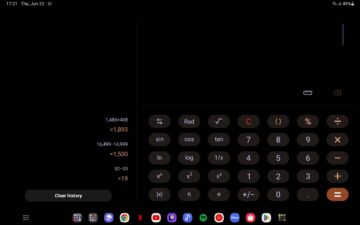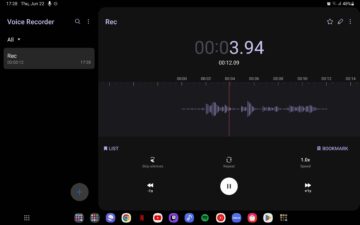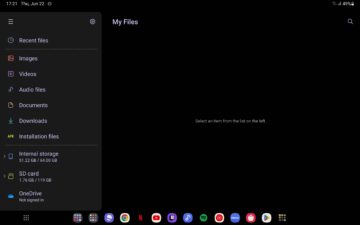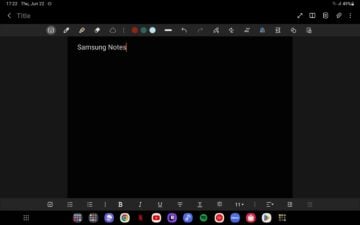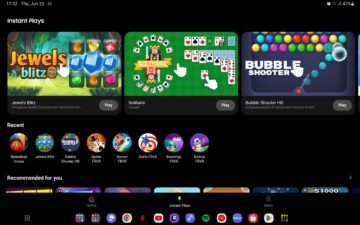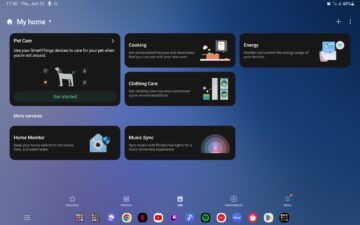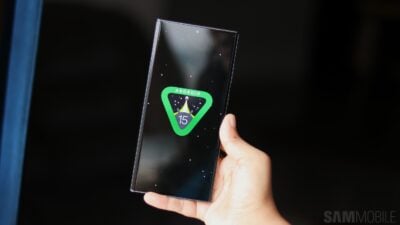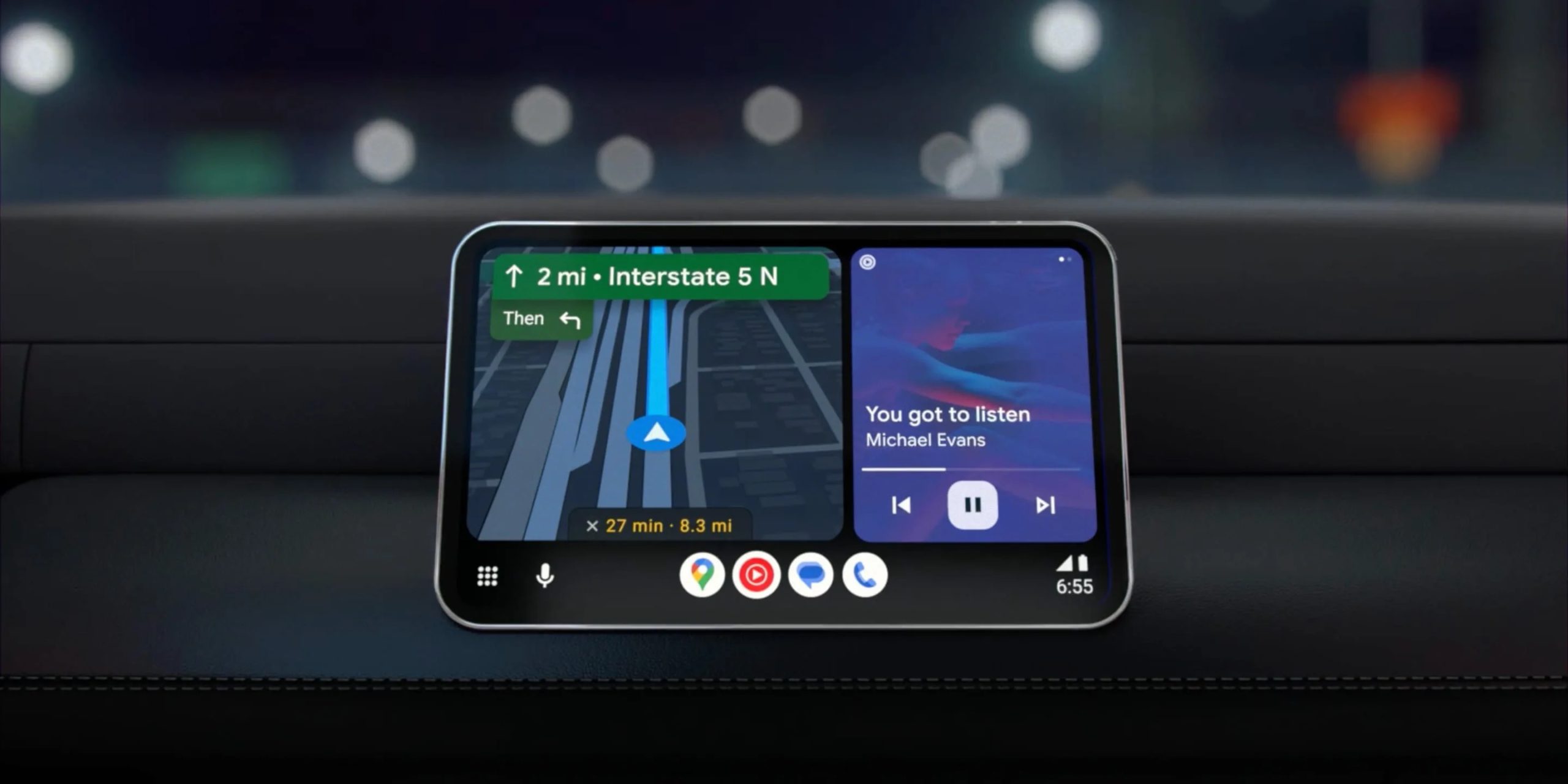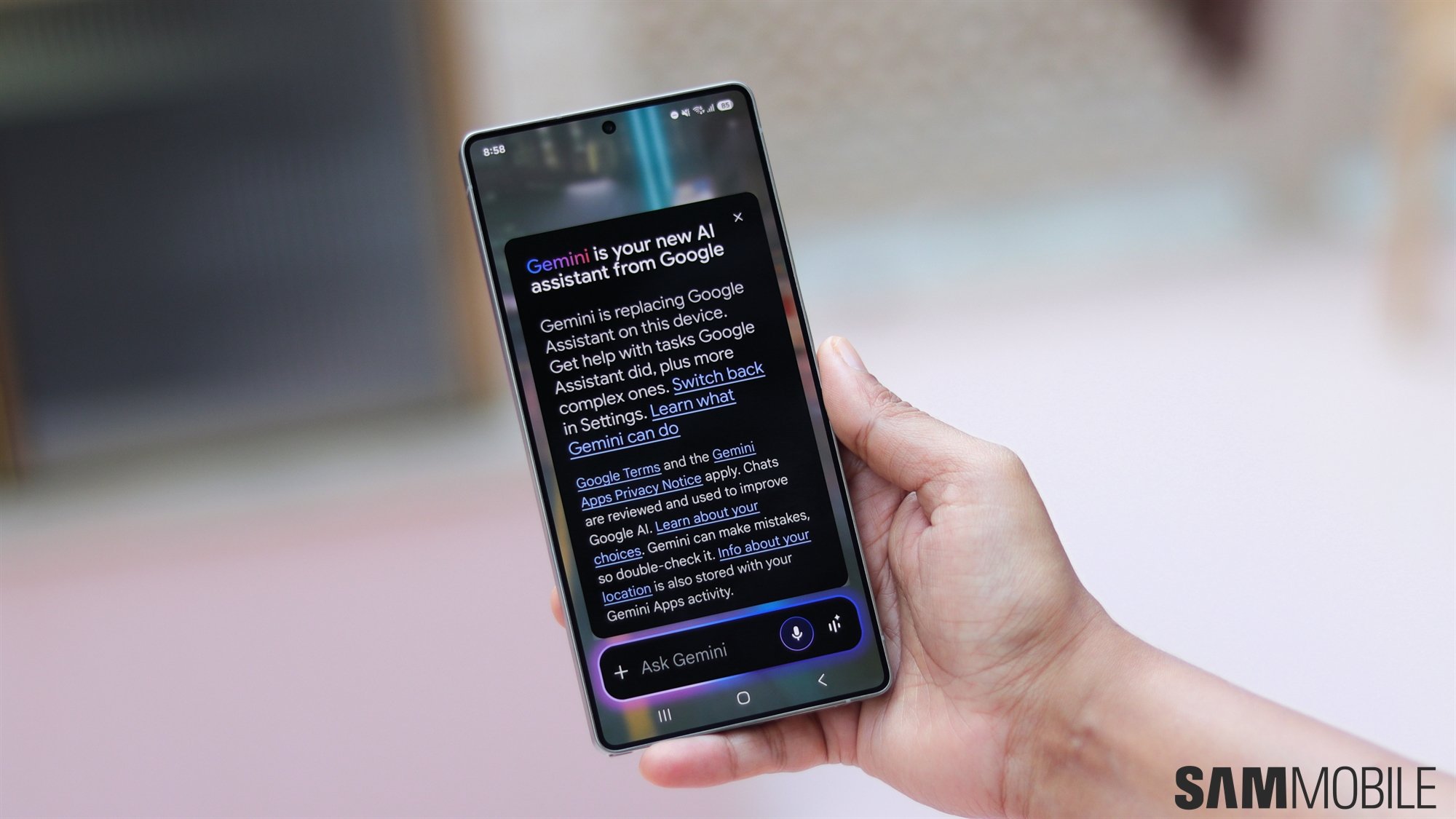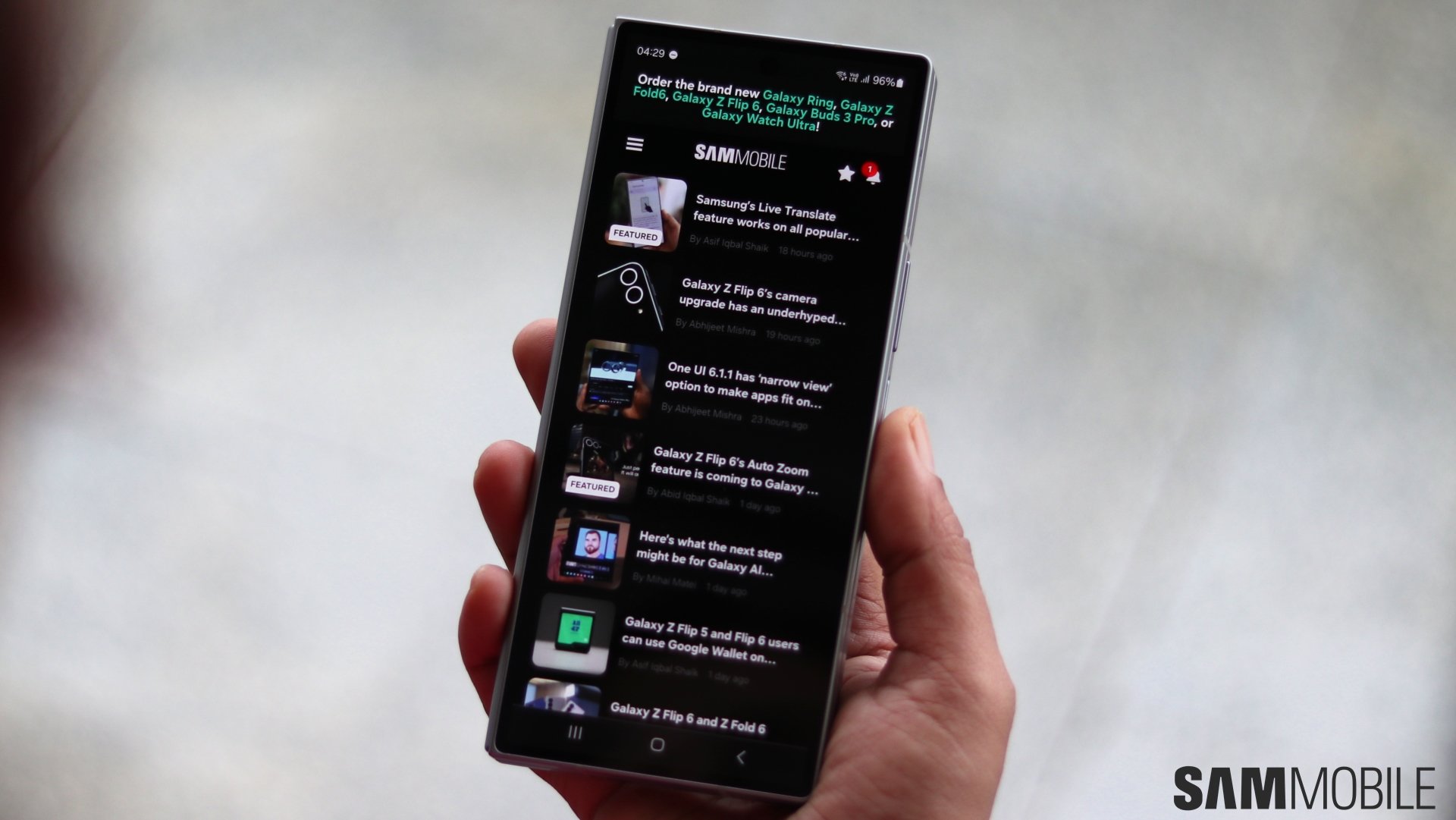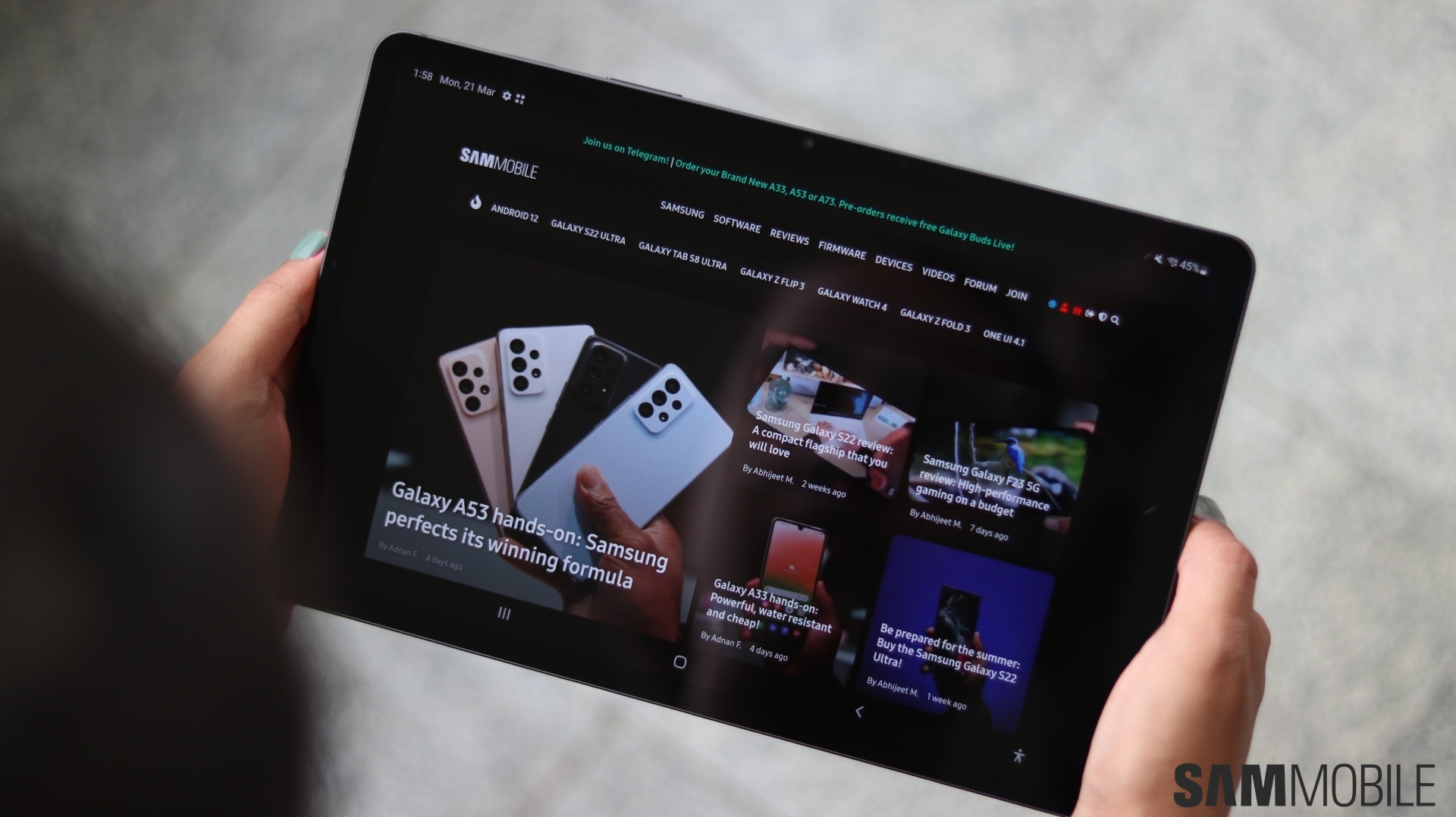
But with Google successfully showing how apps should look on large-screen devices, I keep thinking that One UI accomplished that ahead of the Android maker. You could say that Samsung paved the way for the search engine giant's latest achievement. The Korean tech giant's efforts in this area are why I strongly disapprove of the arguably outdated notion that One UI apps are “bloatware.” They've done what Google apps haven't until recently. They embraced the tablet form factor long ago, and now, they seemingly helped Google see the light.
Samsung's always had faith in Android tablets
In case you aren't a Galaxy tablet user or are unfamiliar with the way Samsung apps work on tablets, One UI got down with the large-screen form factor long before Google made its app optimization announcement at I/O 2022. And yes, One UI apps support Dark Mode, too. Here are a few screenshot examples, from Calculator, Voice Recorder, Contacts, and My Files, to Samsung Notes, Weather, Game Launcher, and SmartThings.
Samsung's apps are one reason Galaxy Tabs remained at the top of the Android tablet segment. Whether or not the Pixel Tablet will threaten Samsung's dominance is to be determined, but I feel like the Android tablet space has never been in a better place. Samsung is no longer alone, and Google is joining the tech giant in improving the Android tablet user experience. This might incentivize third-party app developers to put more effort into tablet-centric UIs.
But even though Google's efforts are commendable, long-awaited as they may have been, I'd say Samsung hasn't received enough credit for its achievements. Bloatware or not, One UI apps have shown that tablet optimization is “a must.” Now that Google's done it, perhaps the Android tablet experience will keep improving. Kudos to Google, but make no mistake: Samsung did it before Google and did it well.












